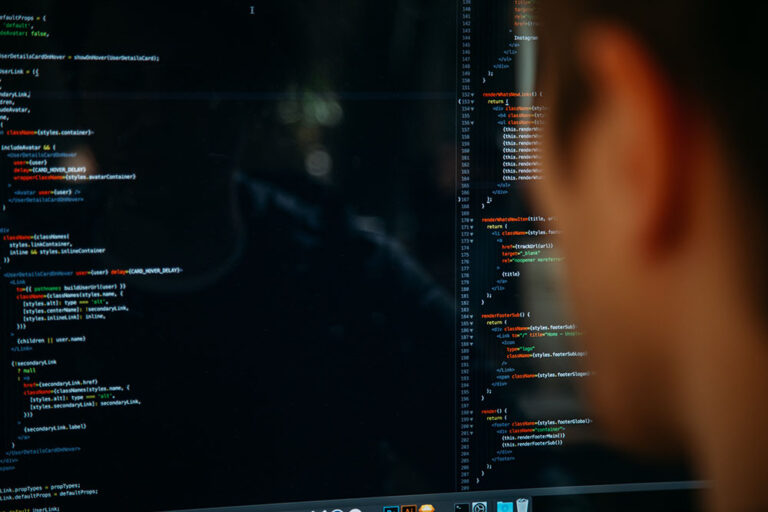Learning to code is not something that can be done in the midst of other activities. But you don’t have to spend your entire life trying to figure it out. There are a variety of strategies you may use to make studying more enjoyable for yourself. It is quite a common thing for novices to begin learning programming with some prior knowledge of the subject matter. Everything appears to be going smoothly at first, but as you go through your studies, difficulties begin to arise. Why? A common misconception among beginners is that they already know everything and so skip through the introductory section. This is rarely the case, though. They are familiar with some of the subject, but not nearly enough to have a firm understanding of the fundamentals.
Basically, everything you face online is there due to coding. Any app, website, or service is the product of programming. No doubt it causes huge interest among people, as the more popular your site is, the more money you make. Therefore, whether you want to develop an app for tracking your money or a custom writing service, as Pro papers you need to know how to do it properly.
However, progress is a constant. Slowly or fast, don’t skip a single subject. You’re laying the groundwork for your future by becoming proficient in additional subjects.
1. Start with The Basis
Learning a language requires starting at the beginning; otherwise, it would be difficult to grasp more difficult concepts fast. A similar situation occurs when learning a programming language. After choosing a goal and a language, students must immerse themselves in concepts such as variables, structures, and data arrays. Understanding how this works, in theory, will make things a lot simpler in practice.
It’s critical to avoid spreading to several languages at once, due to the differences between them. If you are proficient in the first language by the time you reach the Junior level, you are free to go on to the second. If you don’t, you run the risk of being a perpetual learner.
2. Pay Attention to Examples
Usually, when we talk about reading, we mean reading words on a page, but when we talk about reading code, we mean reading computer code. It’s important to examine and comprehend each example while you’re first starting to code. You can also begin by reading and understanding the code examples, and then go on to the text. Even if it doesn’t work all the time, it encourages you to examine the code closely and examine every little nuance.
3. Practice More
Start developing programs in the language as soon as you have a basic understanding of it. It’s not always easy to come up with new program concepts. It’s okay if you don’t have an idea right away; you don’t have to. You don’t have to look at the examples to do the exercises from the manual or book you’re reading. It’s not as simple as you would think it is. If you alter the code from the samples just a little bit, this method still works great.
Start with little parts that you may subsequently utilize to construct a game if you don’t want to worry about small programs but instead want to develop something bigger straight away, like a game. With or without them, you’ll have learned a lot. Make an effort to devote a few hours each week to honing your coding abilities. This is a key component in your ability to pick things up fast.
4. use Multiple Sources
As stated previously, learning the language is impossible, and understanding its basic concepts will take time. Try to combine online classes, seminars, articles, and books to learn the new subject (if you like). Taking lessons in open webinars responsibly can teach you unique and important skills that you won’t discover in books.
If it doesn’t work, then ask someone else. If you say “I don’t understand, please explain”, you’ll likely get a link to the same content. Instead, recount the passage in your own words. The more you share about yourself, the easier it is for an expert to answer. When asked questions, programmers might get irritated. But they want to go forward in the conversation, which needs both parties to work hard. You will obtain good outcomes if you ask clever, thorough questions.
5. Do Not Overwhelm Yourself with Old Sources
Continuing from before, we advise against wasting time on books. In reality, most were written over 10 years ago, and new ones are typically published first in English. Reading books might be tedious and take away from practice time. Books are thought to be a way to avoid actual work, however, this is a dead end. Instead, read profile pieces or longreads that discuss skills in practice.
6. Communicate with Others
Every well-known programming language has a community of users who share knowledge and gather at conferences, meetings, and lectures. Consider joining social networks, forums, or Telegram conversations with other language learners if it appears you won’t give up on learning the language. If you have any questions, there’s a good chance you’ll get help with the code or advice that will help you learn more and grow better at what you do later.
Conclusions
If you want to learn how to build amazing apps, you will need to have a working understanding of contemporary programming languages, as the project structure is built around the code you write. The quality and performance of the product will be determined by your ability to communicate effectively in the target language, which will determine its popularity with consumers as well as its revenue flow.

0 Comments